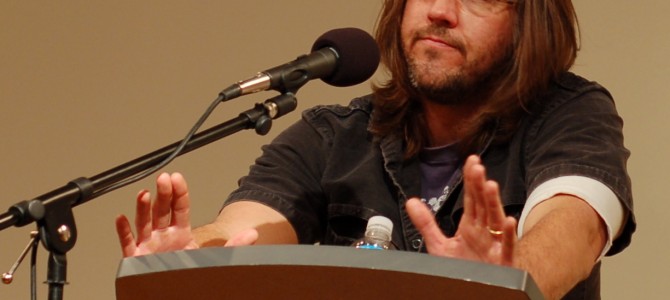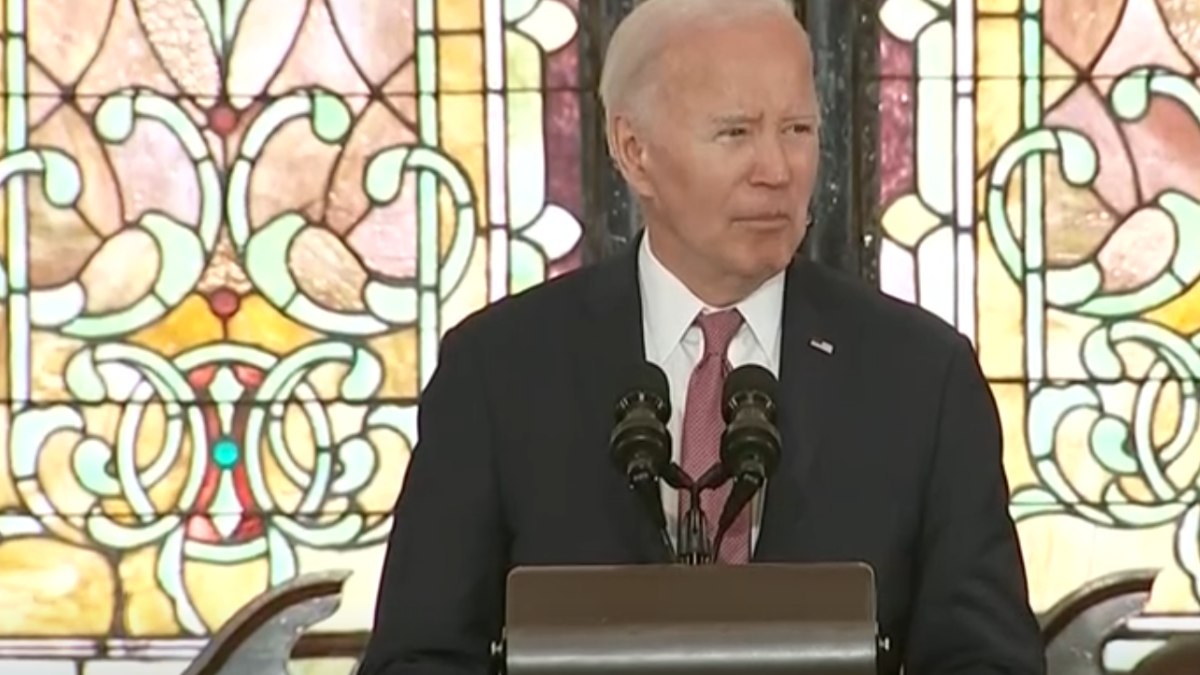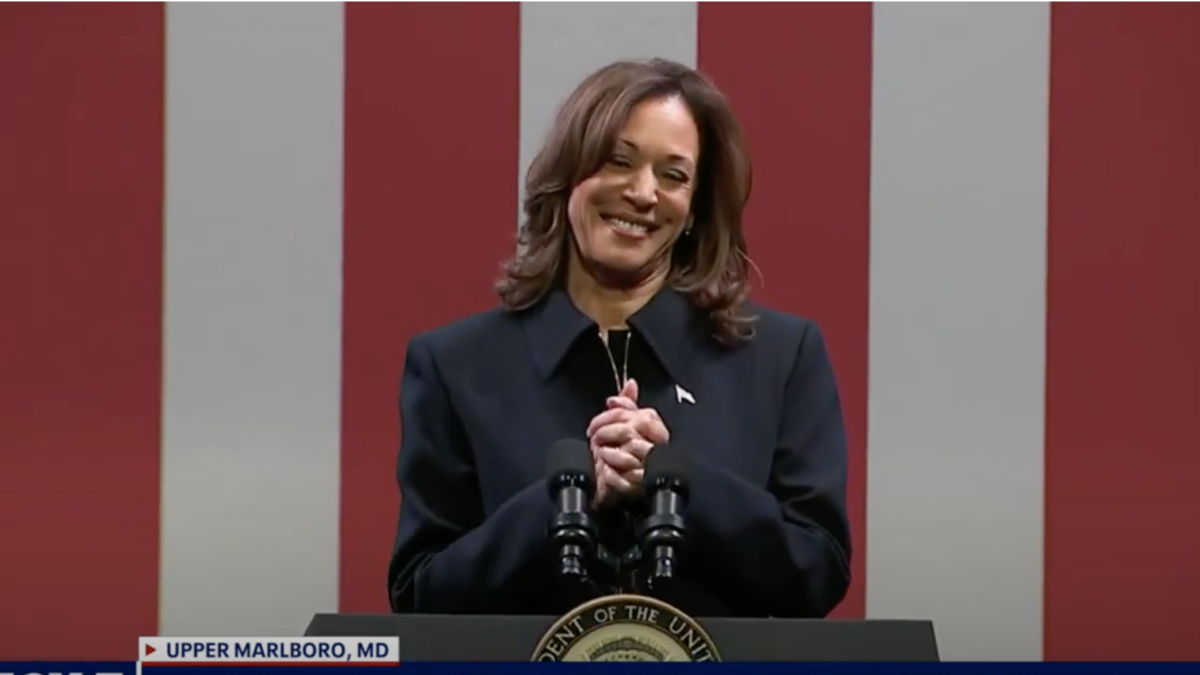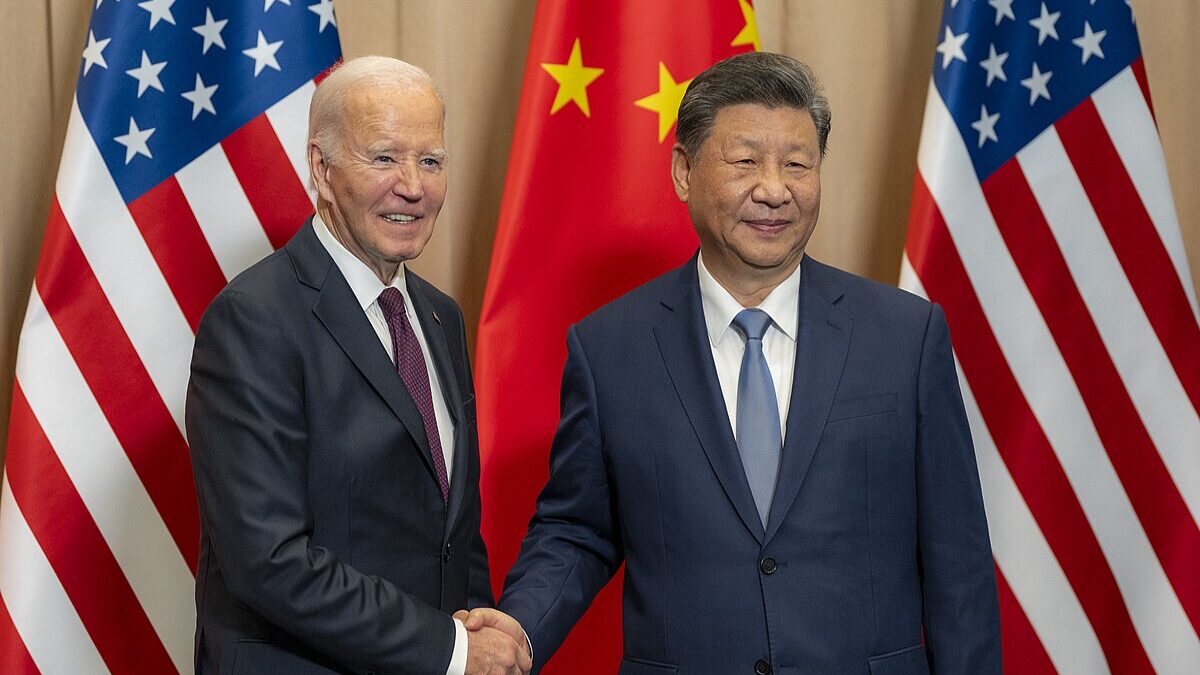
In a now-famous commencement speech delivered nearly a decade ago at Kenyon College, the late novelist David Foster Wallace unpacked the old cliché that a liberal arts education isn’t about teaching you what to think but teaching you how to think. Wallace said the cliché is actually shorthand for a much deeper, more serious idea: “learning how to think really means learning how to exercise some control over how and what you think. It means being conscious and aware enough to choose what you pay attention to and to choose how you construct meaning from experience. Because if you cannot exercise this kind of choice in adult life, you will be totally hosed.”
We have to do this, he said, because it’s the only way to get free of our “natural, hard-wired default setting, which is to be deeply and literally self-centered and to see and interpret everything through this lens of self.” Throughout the speech, Wallace evinced an almost Roman Catholic understanding of human nature and the way that passively moving through life on our “default setting” can leave us “uniquely, completely, imperially alone day in and day out.”
The danger in such profound isolation is that it warps our perception of reality. Specifically, Wallace cautioned against a kind of selfish, arrogant intellectual dogmatism that takes the form of “blind certainty, a close-mindedness that amounts to an imprisonment so total that the prisoner doesn’t even know he’s locked up.”
He called it an imprisonment because this self-centered way of thinking is automatic; it doesn’t have to be a choice. Unconsciously accepting our beliefs and assumptions, however narrow or self-centered, takes almost no effort. It’s our default setting and also how the world at large encourages us to be. Freedom from that “involves attention and awareness and discipline, and being able to truly care about other people and to sacrifice for them over and over in myriad petty, unsexy ways every day.” That’s what Wallace thought the old cliché about learning how to think, about being educated, was really all about.
Fast-forward to 2014. On Sunday, the commencement speaker at Haverford College finally came out and said what many Americans have doubtless been thinking this graduation season. Former Princeton University President William G. Bowen said Haverford students who had protested an earlier invitation to Robert J. Birgeneau were “immature and arrogant.”
(Haverford grads had demanded that Dr. Birgeneau, a noted physicist and former chancellor of the University of California, Berkeley, apologize and explain his role in shutting down a 2011 protest at Berkley before speaking at their school. Birgeneau withdrew.)
Bowen’s rebuke to Haverford’s graduating class came after a spate of recent student protests that derailed planned commencement speeches by Ayaan Hirsi Ali at Brandeis, Condi Rice at Rutgers, and Christine Lagarde at Smith.
In each case, students and faculty objected to the speakers for offending the progressive values of the academic Left in some way. For Hirisi Ali, it was for making allegedly “Islamophobic” comments in her efforts to raise awareness about the mistreatment of women and girls in Muslim countries. For Lagarde, her offense was simply being the head of the IMF, which student protestors at Smith credit with the “strengthening of imperialist and patriarchal systems that oppress and abuse women worldwide.” For Rice, well… Bush lied and you know what happened next.
These objections—and the many assumptions behind them—are couched in the practiced language of political activism, but they are not entirely political. Something more insidious is at work. The Class of 2014’s breathless outrage displayed immaturity and arrogance, to be sure. But in their refusal, indeed their inability, to adjust their own default settings and tolerate the views—if only for 20 or 30 minutes—of people with whom they disagree, the students revealed something far worse than rank partisanship: they do not know how to think.
This is primarily the fault of their schools, some of the best in country, which have utterly failed to teach them how to think in the way that Wallace describes and instead have indoctrinated them with a narrow political view of the world that is never allowed to be challenged. Little wonder, then, that the default settings and assumptions of mainstream liberal academia have been adopted wholesale by many college students.
On its own, that wouldn’t be so bad. But the commencement speech protests confirm that an alarming number of graduates are unwilling to challenge their own assumptions, to exercise self-awareness and choice in how and what they think, to reject unconscious intolerance and arrogant certainty.
That is a kind of tragedy, because they have not only demonstrated their lack of education, but also their intellectual enslavement. Though Wallace doesn’t say it outright, this kind of enslavement is also a form of moral bankruptcy—and one that’s as much a problem for working adults as it is for college grads. Bret Stephens warned the Class of 2014 that, “No society, not even one that cossets the young as much as ours does, can treat you as children forever.” Although it’s true that cossetted graduates will surely be offended out in the real world, that doesn’t mean they will change. Moving through life without questioning your assumptions or listening to those who see the world differently than you is, after all, a lifelong temptation.
Wallace opened his commencement speech with a “didactic, parable-ish” story about two young fish swimming along and an older fish who swims by and says, “Morning, boys. How’s the water?” The two young fish swim on and eventually one turns to the other and says, “What the hell is water?”
Wallace closed his speech by coming back to this image. The real value of an education has nothing to do with knowledge, he said, “and everything to do with simple awareness; awareness of what is so real and essential, so hidden in plain sight all around us, all the time, that we have to keep reminding ourselves over and over: ‘This is water. This is water.’”
To remain conscious of our default settings and assumptions—knowing what is appropriate and inoffensive to say or think, or what sort of people we will or will not listen to—in the day in day out world of adult life is a lifelong task. It is not easy, and it is not something one learns to do after just four years of college. But that is where it should begin.
Follow John Davidson on Twitter.








